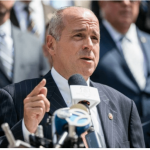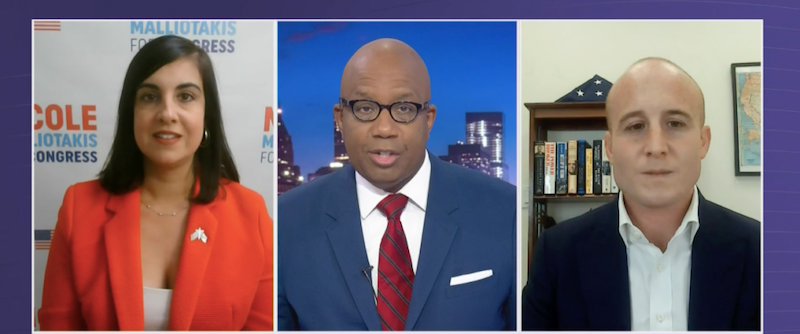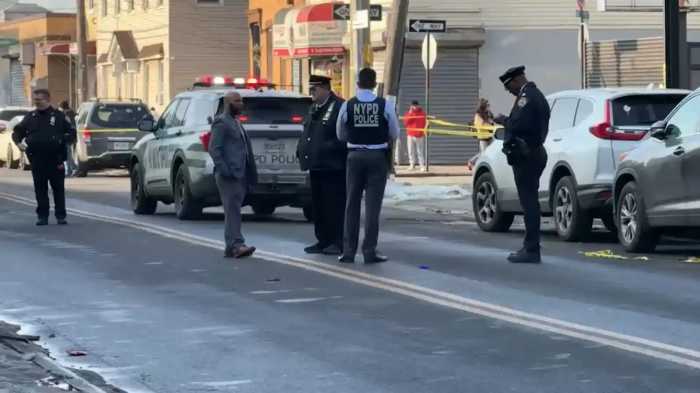The Staten Island and Southern Brooklyn congressional campaign in the 11th district, otherwise known as the Republican Nicole Malliotakis vs. Democrat Max Rose throwdown, made national news this past election and certainly national business for the ad-makers that produced and placed commercials that saturated channels pretty much everywhere. From the candidate committees to the independent expenditures, the commercials were hard hitting, clever, informative, sometimes negative and usually entertaining. There were a lot of them.

Assemblywoman Malliotakis ran a relentless ground game, grinding out votes the old fashioned way – door to door, through neighborhood supporters, backed by police unions (including the Sergeants Benevolent Association, the diverse union I have the honor of leading), amassing an army of dedicated volunteers, raising contributions, having a steady and aggressive digital campaign in place and through sheer force of will. The Congresswoman-elect highlighted concerns surrounding public safety, the radical left turn of Democrats and increasing lawlessness.
Incumbent Congressman Max Rose did what he could. He tried to be all things to all people not very effectively and wound up being nothing to most. He didn’t seem to have a plan other than throwing everything against the wall. While both candidates and their many supporters went negative against each other early and often, only Rose seemed to be surprised that his actions produced consequences. Marching in a protest that called for recklessly defunding police hurt him politically but he either didn’t see that coming or figured it wouldn’t or shouldn’t apply to him.
And then there was the bookcase.
The NY1 debate between Malliotaks and Rose, expertly moderated by Errol Louis, was Must See TV. The content of the debate has been extensively unpacked elsewhere but I want to focus on something just as, if not more, telling than what was said: the backdrops behind each candidate.
Behind Max Rose was a bookcase with a shelf, visible on camera, lined with political biographies. Prominent among the titles was Robert Caro’s The Power Broker, the definitive biography and examination of builder Robert Moses. Among followers of municipal politics and policy, having a copy of The Power Broker on your shelf (and actually reading it!) is a sign of savvy and in-the-know cynicism. The book is so popular among this set of opinion shapers that its white cover and large red title in Zoom backdrops was the focus of a New York Times story in which Rose admits placing the book in view. There’s also a Twitter feed shared among the news and media set – Room Rater – that scores remote interview backdrops in Olympic fashion (“Good double wall set up. Art. Lower camera slightly/reframe. 8/10”) with a subgroup specifically about Caro book sightings.
All of which begs the question – who was Max trying to connect with in his debate? Who was his real audience? While Staten Island and Southern Brooklyn voters may have read the books on his shelf, he clearly had the social media chattering class in mind. He was thinking about himself and how people outside of the district thought of him. It showed in his debate performance.
Nicole, in contrast, had a campaign banner behind her prominently featuring her name and the office sought – Nicole Malliotakis for Congress. It was about the campaign. About the office. About the voters. Knowing the debate would be widely seen and used for commercials, she took the opportunity to best connect with actual voters, not impress media professionals. A telling difference.
Cops are savvy. Cops know when they’re being fed a line or a story. It’s how we’re wired and it’s how we’re trained. Voters also know when something rings false to them – a lesson candidates for public office are frustratingly slow to accept.
Max Rose is a decorated veteran, a service for which we should all be thankful. Also on his book shelf was an American flag. He would have been better advised to have had the stars and stripes hanging in the background during the debate. It wouldn’t have made a difference, but it would have been authentic.
Ed Mullins is president of the Sergeants Benevolent Association of the NYPD.









